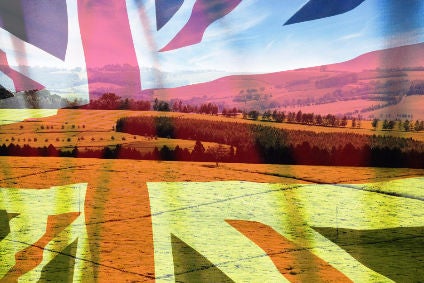Brexit creates deep uncertainty over the shape of future food and drink regulations in the UK – and the same applies to market access for companies operating from Britain or seeking to export to its consumers.
Victory for leave campaigners in the UK’s in-out referendum enables the country’s government to kick off an exit process by invoking Article 50 in the Treaty on European Union, which gives notice that a member state wishes to leave.
Short of the UK government collapsing in a no-confidence vote triggering a general election, it is hard to imagine the referendum decision not being honoured. And once Article 50 is invoked, the UK would have two years to renegotiate its relationship with the EU, during which time existing EU legislation would stay in force. Laws range from the EU chemical control system REACH, excise duty controls, food health claims, plastic packaging content rules and much more.
UK Prime Minister David Cameron announced this morning he will step down by the Conservative Party conference in October, adding to the sense of uncertainty swirling around the country this morning. In a speech outside Number 10 Downing Street, Cameron said it would be his successor who would trigger article 50 of the Treaty on European Union, which will officially pave the way for the UK’s departure from the EU.
Once the UK has made its formal application to leave, it must choose what kind of relationship it wants with its former EU partners. One option would be for Britain to apply to join the European Economic Area (EEA) – which includes non-EU members Norway, Iceland and Liechtenstein. This EU halfway house could limit the economic impact of a Brexit. The UK would recover control of its fisheries and food production spending, and could protect its food markets – although that freedom is prescribed for some manufactured foods.
The quid pro quo is the EU would be able to raise duties against UK food and drink exports. The UK may baulk at this choice as non-EU EEA members have to pay into the EU budget to get access to non-food elements of the EU single market, have no votes on the EU Council of Ministers, and other EEA countries would have to accept it as a member. As membership includes other EU members states, UK membership of the EEA may be refused.

US Tariffs are shifting - will you react or anticipate?
Don’t let policy changes catch you off guard. Stay proactive with real-time data and expert analysis.
By GlobalDataAnother option would be following Switzerland and negotiating bilateral trade deals with the EU. But the Swiss usually have to implement EU rules as the price of such deals. And they are struck only where the EU wants to grant the Swiss market access – so duties on UK food exports to the remaining EU could well be erected.
Another quandary would be the fate of EU trade deals of which the UK is already a part – such as the free trade agreement with South Korea. There is also uncertainty over trade deals those that are pending ratification – such as the deal with Canada; or those under discussion – such as the Transatlantic Trade and Investment Partnership, or TTIP, with the US.
The Canadian deal would have to be renegotiated as regards the UK, a process that may be slower than with the rest of the EU – giving continental manufacturers better access to the Canada market. The US has already said the UK would be at the back of the queue for a trade deal with Washington, long after TTIP is concluded with the rest of the EU. And previously approved deals such as with South Korea would cease to apply after the UK’s two-year cooling-off period, unless Seoul agrees continued market access. They may want to renegotiate with the UK and could wait until London loses its access to the South Korean market through the EU deal.
Another uncertainty is over whether the UK will implement EU food and drink-related legislation that has already been approved by EU institutions, but where the deadline for following these laws has yet to pass. Given Britain intends to quit and the European Court of Justice could no longer order the UK to comply on pain of huge daily recurring fines, there is doubt whether London will implement rules it may not like.
One potential issue could be the EU regulation (EU) No 1169/2011 on the food and drink information for consumers. It says all pre-packed food and drink products sold within the EU must display nutrition information in accordance with the new rules by December 2016. Will Britain enforce these rules, for instance, if the European Commission decides the UK’s traffic light labelling system does not comply with the legislation? Only time will tell.





